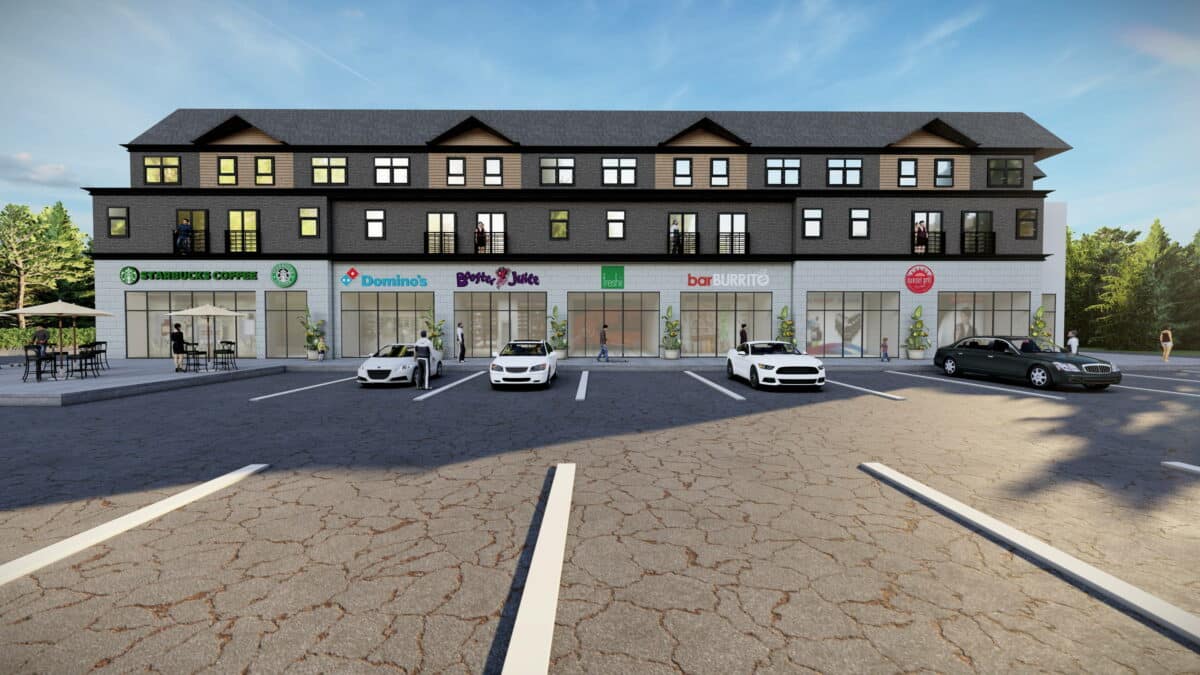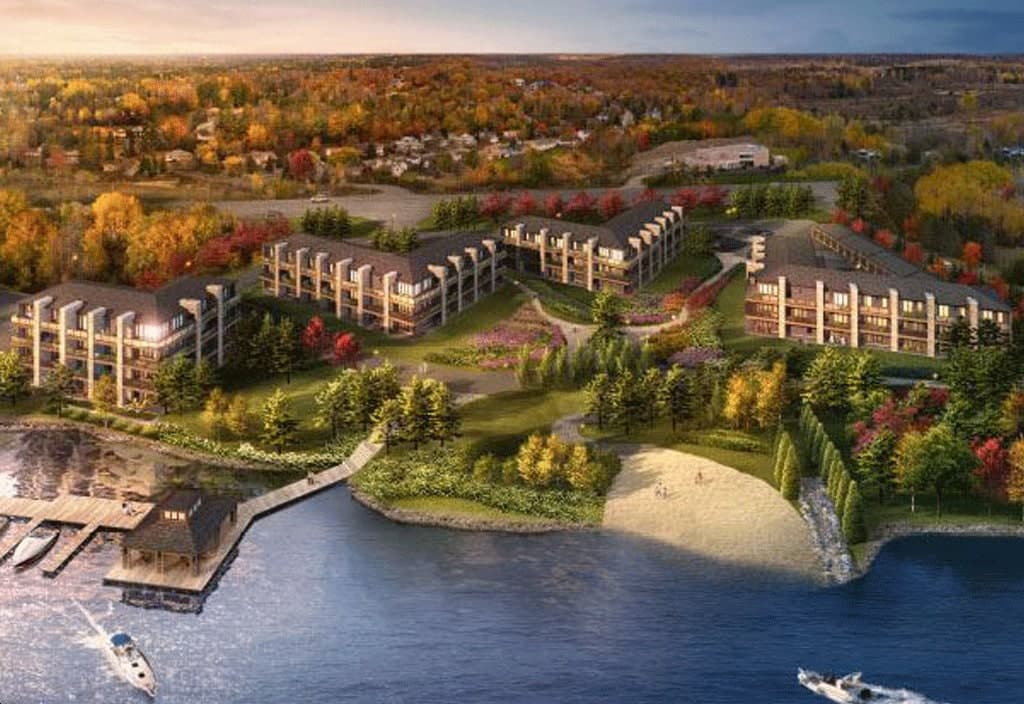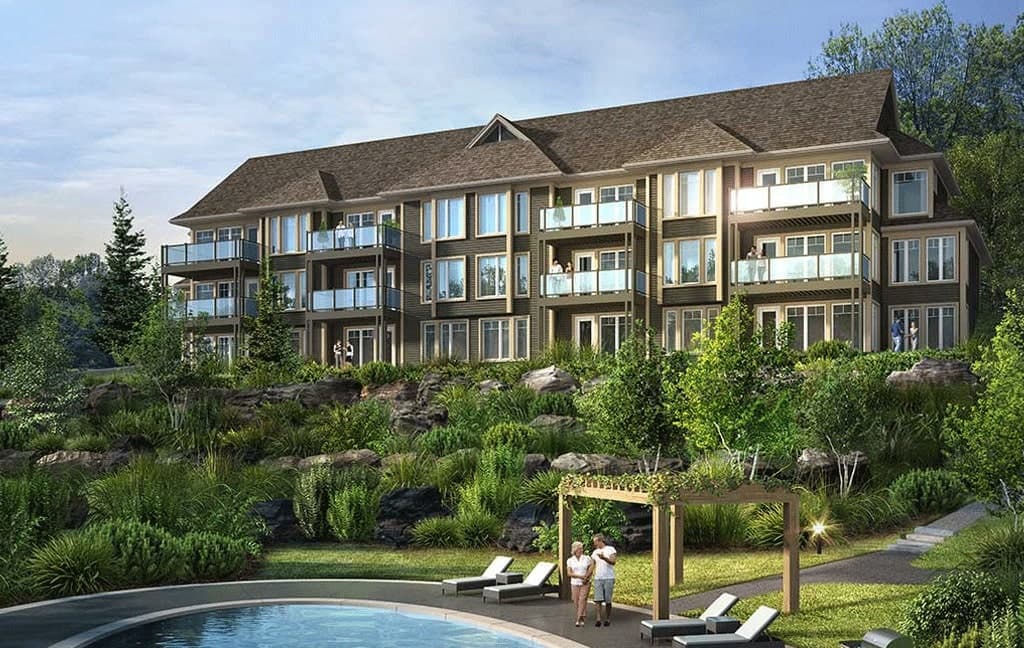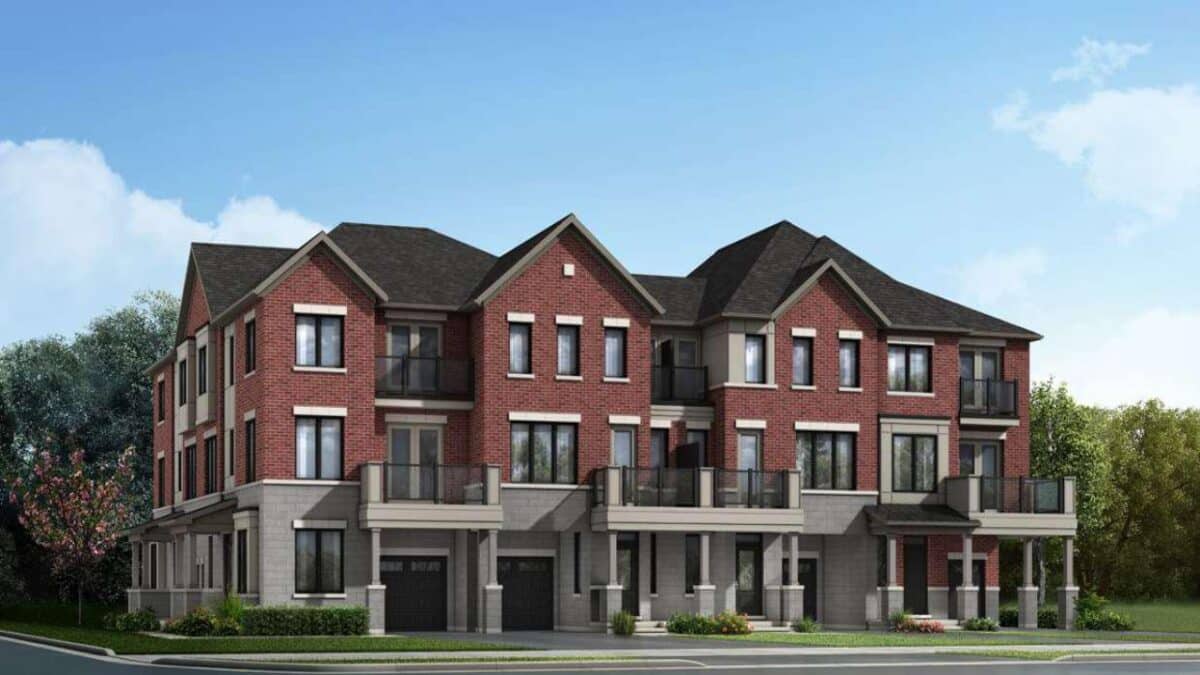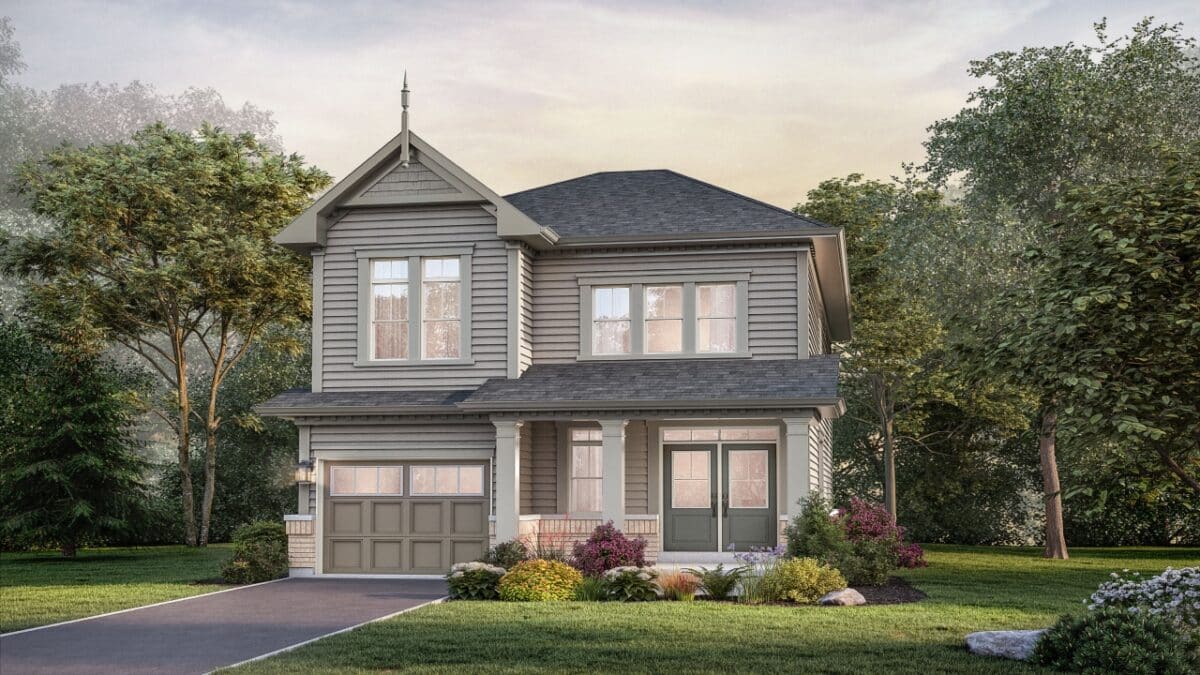List of New Condos in Huntsville
-
Huntsville Lofts
Pricing From $804,900
162 Howland Dr, Huntsville, ON
Developer - Sandhu Developments
Occupancy - 2026
View Details -
Crescent Bay Condos
Pricing From Developer Sold Out
23 Crescent Bay Ln, Huntsville, ON
Developer - Calibrex Development
Occupancy - TBD
View Details -
Treetops Condos
Pricing From Developer Sold Out
Tree Tops Ln, Huntsville, ON
Developer - Club Leisure Corporation
Occupancy - 2024
View Details
Huntsville’s Real Estate Market
Located in the Muskoka region and adjacent to Algonquin Park, beautiful Huntsville is a centre for outdoor recreational activities and lifestyle. It boasts a large shoreline and abundance of open woodland and hill terrain, which stimulates the inner pioneering spirit of the many visitors and seasonal inhabitants who visit frequently or stay permanently once retired. It is an hour and a half’s drive from the nearest major city, Barrie, and is the most populous of the Muskoka region’s municipalities in terms of permanent population. This high number of permanent inhabitants as opposed to seasonal residents provides it a solid backbone in industries other than tourism, allowing the town to diversify its economy with a workforce largely employed by enterprises inside the town’s municipal borders. Its 20,000-person population is steadily growing, with a median age of 48 and the most populous age groups being 50-69. Over half of them are married and have a typical family income of over $70,000, with a quarter of the population living in apartment condominiums and townhouses. Huntsville, like many Muskoka communities, has a high proportion of renters (almost 25%), and rental apartments are expected to be fully occupied for the majority of the year, with a 2019 vacancy rate of 1%. Its population has a slightly lower percentage of residents with a postsecondary certificate or degree than the Ontario average, but a strong showing in college certificates and diplomas, reflecting the nature of the town’s industry, which is more geared toward engineering, construction, and manufacturing.
Reasons to Invest in Huntsville’s Real Estate
Huntsville has the largest permanent population in Muskoka, making it the most dependable location to consider for purchasing or renting long-term real estate. The seasonal population of Muskoka is much greater than the permanent population, with the exception of Huntsville, where seasonal populations account for about one-third of the permanent population. Huntsville, with its high number of permanent inhabitants, can therefore withstand events that have a detrimental effect on tourism considerably better than its neighbouring cities, owing to its strong industrial and service sectors. Construction of new houses in Huntsville has also increased significantly since 2016, reaching a peak in 2021, when it saw another surge since 2020. The bulk of these Huntsville real estate projects are pre-construction houses, with a few pre-construction townhomes and condominiums thrown in for good measure. This implies that enough of new real estate inventory is being created to satisfy Huntsville’s desire for new homes. Families, professionals, and retirees want to relocate beyond the Greater Toronto Area and find comfort in the vast expanse of Huntsville’s natural areas, shoreline scenery, and the possibility of huge tracts of private property acting as major attractions. Covid-19’s influence on travel capabilities is anticipated to have a long-term effect, since desire for permanent ownership in Muskoka has increased in preference to rental homes. As potential purchasers’ economic prospects become more clear as the epidemic winds down, demand for homes will stay high. This will be facilitated by a combined investment of over $2 million by the governments of Canada and Ontario on public infrastructure that will benefit the health and well-being of communities like Muskoka. Concentrating specifically on transportation infrastructure improvements between these towns and beyond.
- 1
- 1
- 1
- 1
- 1
- 1
Employment in Huntsville
Tourism is a major business in every Muskoka town, although Huntsville is one of the few in the area with a year-round workforce due to its large permanent population relative to seasonal residents. Whereas some towns are swamped by seasonal inhabitants, their economies are strongly skewed toward tourism to the point of dependence, Huntsville has the permanent workforce it needs to stand on its own. The town’s four main economic sectors are construction, manufacturing, retail commerce, and business services, with healthcare coming in fifth. Almost majority of Huntsville’s inhabitants work inside the city’s census boundaries, with just 15% commuting beyond the city. As a result, a staggering 60% of its inhabitants go to work in under 15 minutes. Huntsville has a good showing in college education but a poor showing in university certificates, with approximately 40% of the population having no tertiary education. Huntsville is populated by a hardworking, engineering and construction-focused populace, with tourism and agricultural facilitation as side businesses. They’re an older working population, with an average age of 49, and the majority are married and live in their own homes, with a household median income of about $70,000.

Average Condo Prices in Huntsville
The number of properties sold in the Muskoka region fell by roughly 38% between 2020 and 2021, but the cost of homes sold increased by 42%. Even with the fall in sales, real estate sales activity in 2021 is still higher than any year except 2016 or 2020. These homes also sell quickly, with most of them selling within 10 days of being listed. The single-family benchmark price for Muskoka as a whole is $628,500, according to the Housing Price Index. Preconstruction condos in Huntsville are the town’s second largest real estate development. For new condos in Huntsville, the average price can range between $570,000-$724,000 based on factors like proximity to the waterfront.
Getting Around in Huntsville
In comparison to towns like Gravenhurst and Bracebridge, Huntsville is the farthest from both Toronto and Barrie in the Muskoka area. Future-minded investors will take into account Barrie’s quick growth, which is four times faster than the national average. Although not destined to become the new Toronto, the growth of urban centres around Barrie will make the 1.5-hour drive from Huntsville much more feasible for business trips, vacations, or access to high-end amenities in the city centre, while professional residents can expect to commute in an hour or less. Currently, the bulk of its population commutes inside the city, with almost three-quarters of work commutes lasting less than 30 minutes. This is because the Muskoka area remains too far from larger cities like as Barrie or Toronto to support a sizable commuting workforce. While Barrie is close enough for spontaneous trips to obtain something or attend an event, astute investors purchasing now anticipate properties being rented to seasonal vacationers, students, or longer-term contract workers until the numerous planned industrial developments between Barrie and Huntsville create new employment opportunities for an educated workforce. In terms of public transportation, two buses operate daily routes inside Huntsville from 8 a.m. to 6 p.m., or 10 a.m. to 6 p.m. on Saturday. The bulk of the town’s population travels by automobile to meet their requirements, but these buses do pass by key commercial centres such as the Walmart Plaza and food shops. Anything longer-term would need travelers to take the GO Bus to or from Whitby, which would take over three hours, or over two hours to Barrie.




